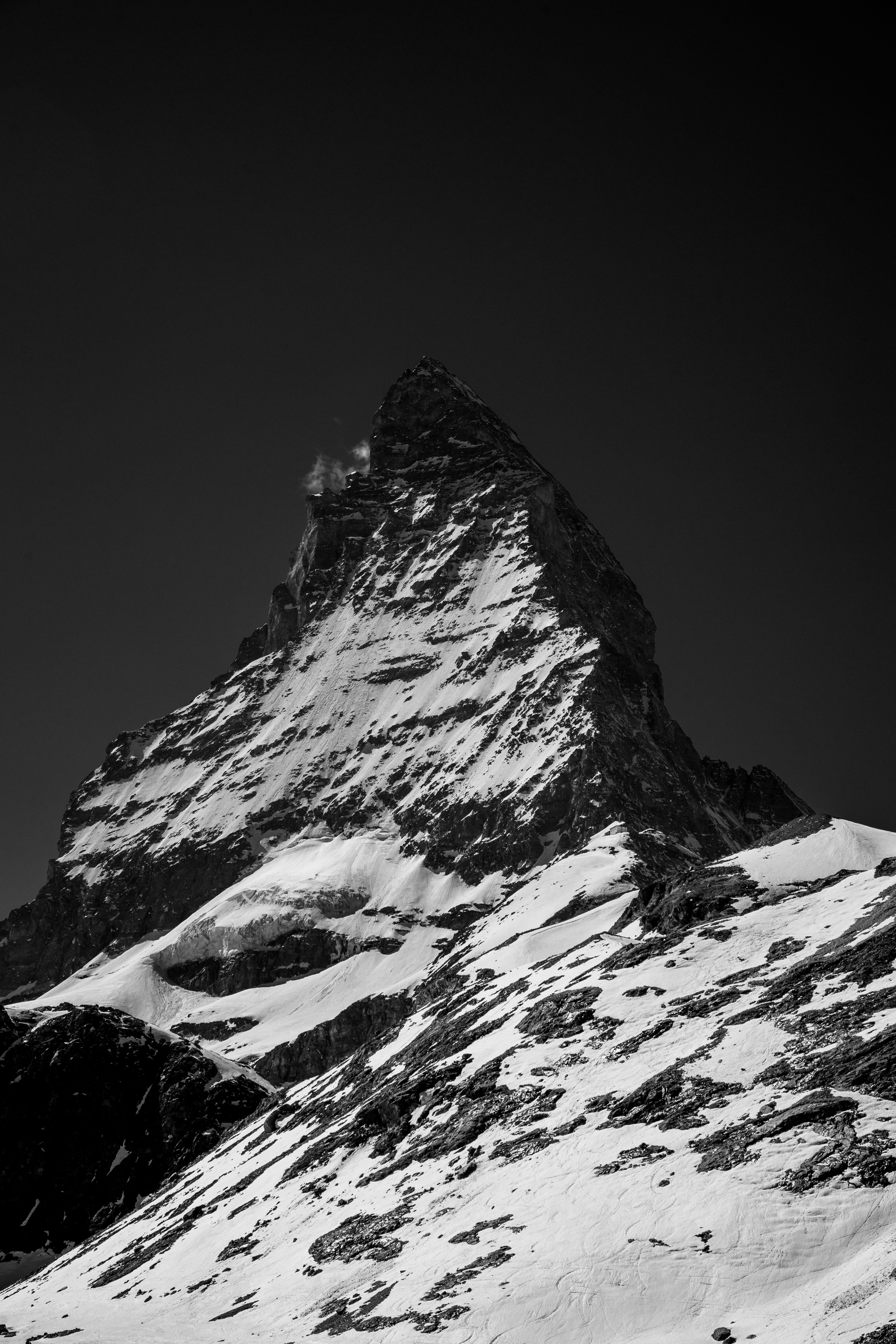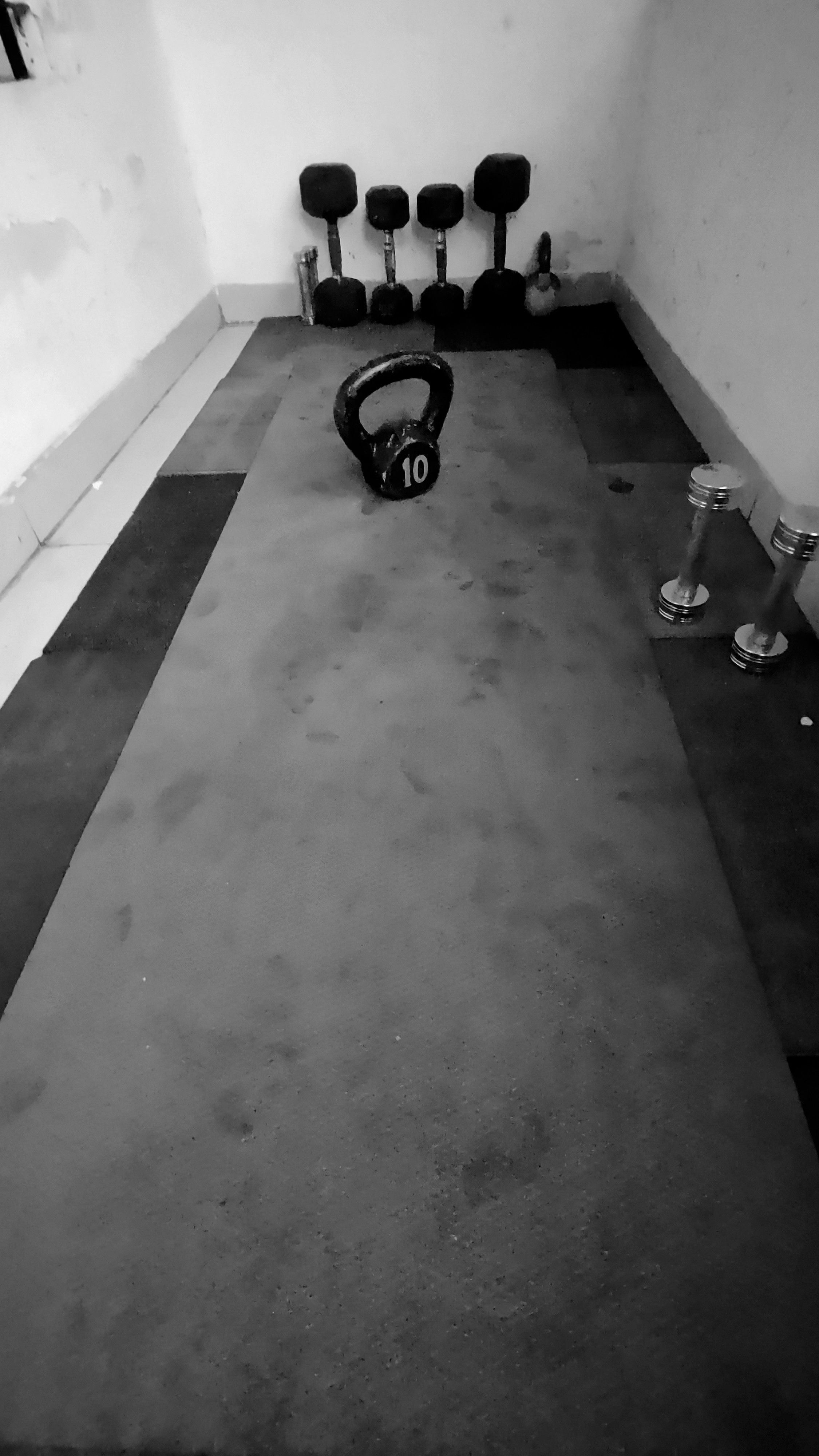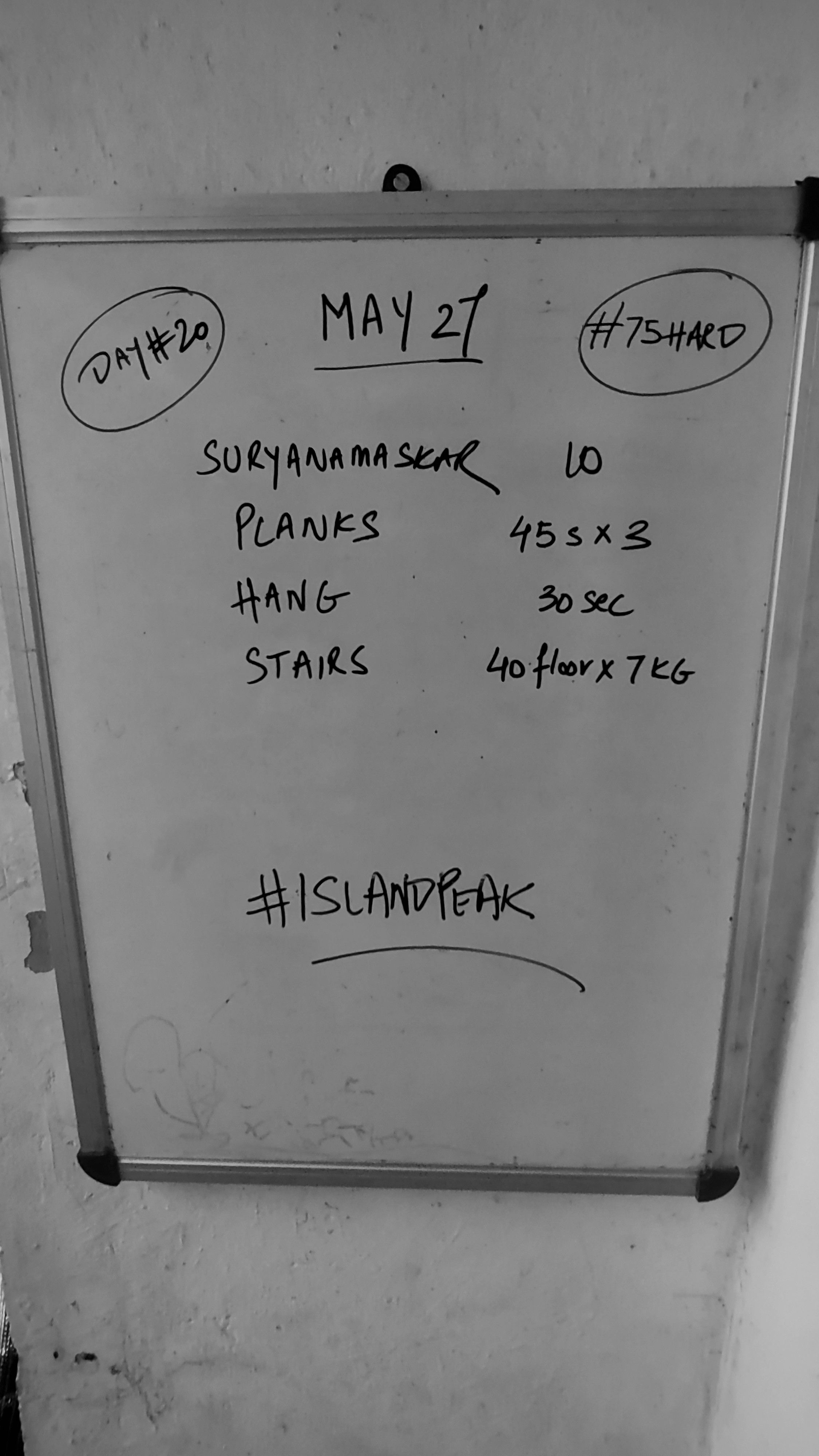
Trek leaders can tell within the first 48 hours if you will summit or not. How? By observing your attitude, body language, questions asked, concerns raised.
If you've been on a high altitude trek you will agree with the definition below. If you are going on your first trek, this is what to expect.
On a trek, you will -
a) walk for long hours carrying heavy weights
b) repeat the process for multiple days
c) eat whatever is on the menu
d) keep a hawk eye on water intake
e) start the summit climb at night
To train to climb a mountain you need to replicate the situations you will face & to leave no stone unturned. Your training should be customised towards providing maximum time on feet, consistent and extreme.
Extreme? Yes, this is no walk in the park.
I mean no disrespect to runners, cyclists, swimmers but just because you practice one sport doesn't mean you can excel at another. If I have never ran a half marathon, ever, you will laugh at me if I decide to run one by training like a mountaineer. Right?
Train for the mountains if you want to climb one. H

Physical Preparation
Continuously elevate feet till waist height with weight on the back
Weighted double stairs are a perfect exercise to practice this motion. Load up a backpack with 5 kg dumbbells or books, find a building with lots of stairs and up you go. Add 1 kg weight every week till you reach 12-15 kg. How many stairs? Start with a 1000 stairs, add 100 every week till you reach 2000. I do this twice a week. Once with weights and once without.
Strengthen your core and legs
2-3 times a week, use weights to strengthen your calves, hamstrings, glutes. Deadlifts, squats, lunges. Do variations of planks to make your core strong.
You don't need a gym membership if you don't have one. I dislike gyms. So I've carved my own space in a balcony with dumbbells, kettlebells, yoga mat, basic stuff.
Look up 'compound exercises' and do those instead of wasting time doing biceps curls.
Breathing exercises to increase lung capacity
Heard of Wim Hof? Experts swear by his breathing techniques. He has a 11 minute guided breathing session you can start practicing daily. Start your mornings with this exercise and move into your strength training / mobility workouts.
Train for fatigue
The number one reason trekkers give up on a climb is due to fatigue. It hits you like a boulder. But If you know what's around the corner, you can prepare.
The way I've been coaching my mind and body for fatigue is to do my most strenuous physical activities of the week on back to back days. My typical weekend is 10-12 km of hill run on Saturday followed by a 15 km walk with a 12 kg backpack on Sunday.

Mental preparation
Ah yes! My favourite topic. Given a choice to go back to college and pick an area of study, I would pick studying the human mind. I now make it up by reading what others have studied instead. A great book on this subject is Atmamun by Kapil Gupta, MD.
"Man cannot be free until he realizes how deeply he is bound. He cannot use his mind until he first breaks free from its control.”
- Atmamun: The Path To Achieving The Bliss Of The Himalayan Swamis. And The Freedom Of A Living God.
Visualisation exercises
Every Everester I have spoken to tells me they rely on this habit. They know exactly what to expect on the route and imagine themselves facing the challenges and reaching the summit.
Study your trek route in and out. Especially the summit. How long will it take it reach point A, B, C? Where will you stop for a break? If I ask you where will you be at 5am on summit day, you need to know the answer.
Train without distractions
Turn off the music. You need to make friends with silence. You need to confront your thoughts. These are the same thoughts that will creep up when you are 100 m away from the summit and tell you to stop and turn back. Face them, kill them.
Mind games
The thing about our mind is that it is predictable. Millions of years of hard-wiring reveals patterns. One of them is that as long as you keep it occupied, it doesn't interfere. Like a small child, craving for attention, give it a new toy and it will go sit in a corner.
Use these tricks on summit night, when you are tired and sleepy.
a) Come up with as many words as you can from the following letters. Use each letter only once in each word. Ex - IRNAB. Keep a small piece of paper with random letters in your summit jacket pocket and pull it out when you the mind starts acting up.
b) Name a city / peak / animal starting from Z and making your way up to A. Repeat the entire string whenever you add a new one. Don't know a peak starting from Z? Me neither. I had to look it up here. Zugspitze.
c) Say letters in reverse (Z, Y, X, W, V, U...) as fast as you can.
If you got a good mind game, please share with me.

Finer Details
Let's go deep. 10 additional tried and tested tips to help you reach the summit.
1. Long runway - give yourself enough room to prepare for a trek. A trek should not be a spontaneous, spur of the moment decision that you take for this coming weekend. No!
In an ideal world, we would be working out and eating healthy throughout the year. If you don't fall in that category, follow this thumb rule for how long before you should start training.
6000 m - 6 months, 5000 m - 4 months, 4000 m - 3 months
2. Wake up early - 'Tomorrow's schedule is 6-7-8', you will hear a trek leader say to the group usually during dinner time. This means that you should wake up at 6am, be ready for breakfast and final instructions by 7am in order to start the trek at 8am. 6-7-8 is the most commonly used schedule.
Start getting up at that time daily months before you go. This will regulate your circadian sleep cycle and it will be one less thing to worry about on the mountains.
3. Drink warm water - form a habit of drinking 1 liter of warm water when you wake up. This will help you acclimatise better and clear your stomach early morning.
4. No new supplements - don't introduce new supplements on the trek. If you never consumed BCAA during your training, don't start taking it in the mountains. The less surprises you give to your gut, the better chances of your summit.
5. Finalise gear before your start training - If your training begins 3 months before a 4000m trek, you should have your trekking shoes and backpack in your hand even before that. Why? Because you will be using them for your long walks and weighted stairs. Again, keep the surprise element to the minimum.
By the time you reach the mountains I want your body and mind to sing 'ab toh aadat si hai mujhko aise jeene mein'
6. Own vs rent - if you plan to make climbing mountains a habit, which I hope you do, start investing in your own gear and rely less on rentals. Don't go bizerk and buy entire Decathlon stock but slowly accumulate good gear. The last thing you want is to not be able to summit because your rented snow boots were too heavy or the wrong size.
7. Work on your weaknesses - identify them and find solutions. Over the years I have overcome pain in lower back, knees, cramps and currently working on irritable bowel syndrome. Find your weakness, find a program that fixes it and execute it.
8. Don't save money and be sorry later - unless you want to get lost in the Himalayas like we did. Our ganja smoking guide, who we later found out last led a group in the mountains years ago lost his way on Day 1 of Baralacha Pass trek. We left Chandratal Lake and got side tracked by probably a few hundred meters. Over the next few days those few meters compounded fast and ended up adding days to our itinerary. We ran out of food, water, supplies and patience. Never again! Hire a professional company, this is your life we are talking about.
Yes, trekking is an expensive sport.
9. Pro Tip - instead of debating IF you will reach the summit, calculate WHAT time will you reach the summit. Give your mind something to worry about that benefits you. If it's a long summit, divide the total expected time in 3 parts. Ex - basecamp - crampon point, crampon point - ridge line, ridge line - summit.
10. Pro Pro Tip - let the world know that you are going on a trek and that you will summit. I use social media as my acknowledgement partner. I announce which peak I plan to climb, post my workout updates, number of days to go etc. Subconsciously, I don't want to let my community down. It keeps me pushing.
For some, when they announce their goals to others it makes their brain think that it has already accomplished the goal. Not for me, announcing makes me more accountable.
To Summit Or Not Is The Question
Whether you reach the summit or not is decided well in advance during your training. Not by destiny but by you, by your actions or inactions.
In my opinion, there are only three acceptable excuses for not reaching the summit - a) bad weather b) AMS c) physical injury
Nothing else. Nothing.
Take it from me, you don't want to miss a summit because your mind or body failed you. It's deeper than a Himalayan crevasse to crawl out off.
On the other hand, you can try / aim / attempt to reach the summit and be completely nonchalant if you don't reach it.
One is not better than the other. It's simply a difference in intent.
Whenever faced with two choices, which we always are, take away the choice of giving up, you most certainly will succeed.
Is this too obsessive for you? Good. When was the last time you accomplished something without becoming a little crazy?
Lakshya toh har haal mein paana hai.
Jai Hind!
